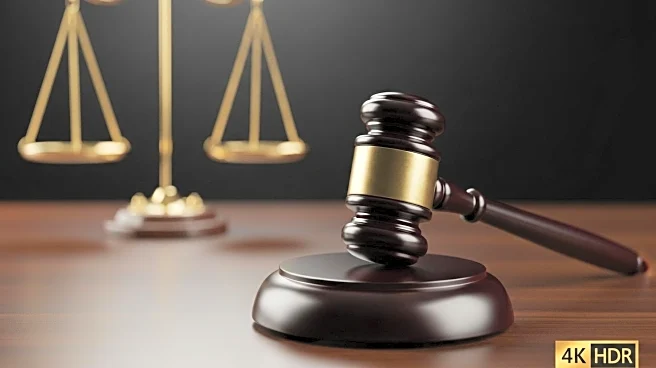What's Happening?
Federal Reserve Governor Lisa Cook has filed a lawsuit against President Trump, challenging his attempt to remove her from her position. The lawsuit, filed in the U.S. District Court for the District of Columbia, claims that Trump's actions are illegal and unprecedented, violating the independence of the Federal Reserve. Cook argues that her removal would breach her constitutional rights to due process and her rights under the Federal Reserve Act. The lawsuit comes after Trump accused Cook of mortgage fraud, a claim she has not been charged for. A hearing has been scheduled, and the case is being overseen by Judge Jia M. Cobb.
Why It's Important?
This legal battle could have significant implications for the independence of the Federal Reserve, a key institution in the U.S. economy. If Cook's lawsuit succeeds, it would reinforce the Fed's autonomy from political influence, which is crucial for maintaining economic stability. Conversely, if Trump prevails, it could set a precedent for increased presidential control over the Fed, potentially affecting interest rate decisions and economic policy. The outcome of this case could impact investor confidence and the broader financial markets, as well as the Fed's ability to manage inflation and employment.
What's Next?
The court's decision on Cook's lawsuit will be pivotal in determining the future relationship between the Federal Reserve and the executive branch. A ruling in favor of Cook could lead to further legal challenges against presidential attempts to influence the Fed. Meanwhile, the Federal Reserve is expected to continue its policy deliberations, with potential interest rate adjustments on the horizon. The case may also escalate to higher courts, including the Supreme Court, given its constitutional implications.










